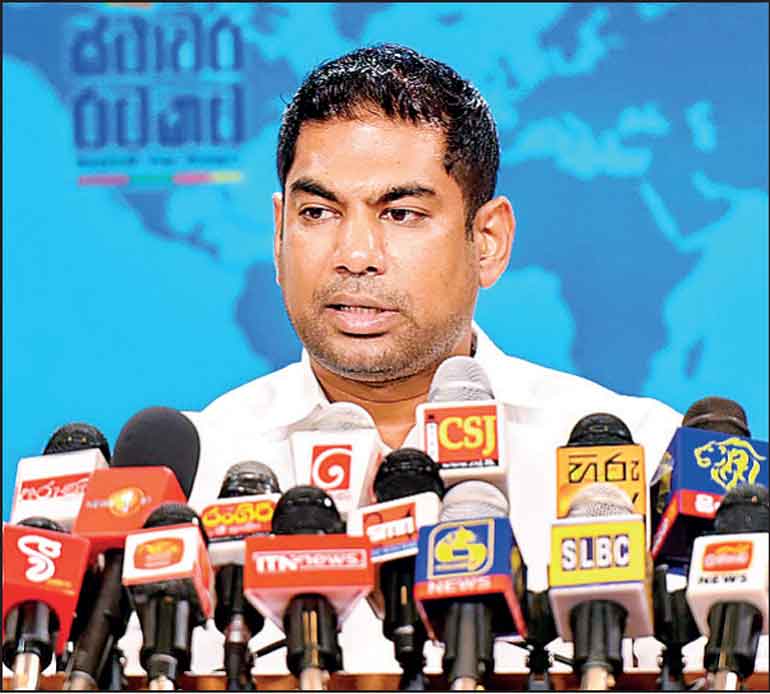Monday Feb 23, 2026
Monday Feb 23, 2026
Wednesday, 20 December 2023 00:10 - - {{hitsCtrl.values.hits}}

Power and Energy Minister Kanchana Wijesekera
Power and Energy Minister Kanchana Wijesekera yesterday announced that the upcoming revision of the electricity bill in January will potentially bring relief to the people.
He also emphasised that the Value Added Tax (VAT) will not impact the amendment.
Wijesekera gave these assurances during a press conference held at the Presidential Media Centre (PMC) under the theme ‘Collective path to a Stable Country.’
Minister Kanchana Wijesekera further stated that the proposed new Electricity Bill has been gazetted and the Ministry is currently receiving various suggestions on it. Diverse perspectives on the proposed new Electricity Bill is actively sought, and stakeholders including trade unions, political parties, public representatives and electricity consumers are invited to submit their comments and suggestions in writing. The submission period is open from today until 3 January 2024. These valuable insights will be instrumental in shaping the bill, enhancing its potential to strengthen reforms and contribute to the future of the power sector. With the aim of inclusivity, the Ministry endeavours to present the draft bill to the Parliament in January, ensuring that it incorporates considerations and proposals from all concerned parties.
Highlighting the imminent tariff revision in January, Minister Wijesekera noted that hydroelectricity is currently being generated at maximum capacity. In October, the increase in electricity tariffs was implemented due to the high cost of electricity production associated with the use of fossil fuels. However, the recent change in weather conditions has been noteworthy. The Ceylon Electricity Board (CEB) has reported that rainfall has been received in the last two months, and further rainfall is anticipated for the next two weeks. In light of this, there is a possibility of revising electricity tariffs. Considering the balance sheets of the Ceylon Electricity Board in December, we are optimistic that relief can be provided to the public in the upcoming tariff revision scheduled for January.
Additionally, Minister Wijesekera assured that the revision in January will not be impacted by VAT, clarifying that the power sector, including the materials used for power generation such as naphtha and coal, is exempt from tax. Discussions are underway to mitigate the VAT impact on fuel prices, which is scheduled for revision in January. There will be no shortage of fuel, as we currently possess sufficient fuel stocks to meet the demand.
Furthermore, owing to a reduction in the consumption of furnace oil for electricity generation in November and the expected decrease in January, a substantial amount of furnace oil and naphtha has been conserved. The storage capacity of the Ceylon Petroleum Storage Terminal Limited (CPSTL) has reached its maximum with the products received from the refinery.
As a result, approval was granted at the Cabinet meeting held yesterday to export the surplus furnace oil and naphtha available in the country.
Moreover, there have been comparisons between Indian solar power plants and those in our country, accompanied by various accusations.
However, it’s crucial to note that Indian solar power plants cannot be compared with those in Sri Lanka. India has the capacity to manufacture its own solar panels, whereas Sri Lanka relies on imports for all components. Significant disparities exist between the two countries in terms of production costs. This divergence is particularly evident in the production of electricity from wind power and transmission line systems.